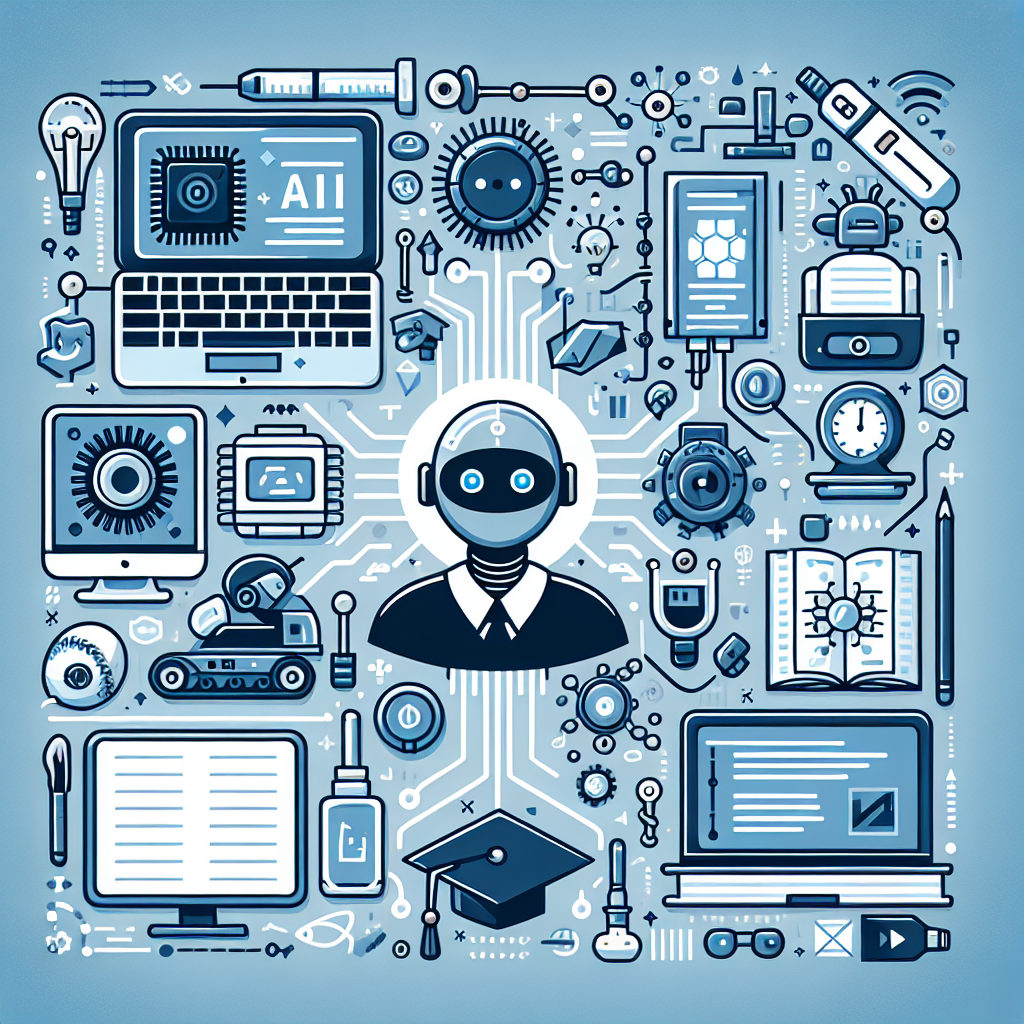AI Solutions: A Game-Changer in Education
In recent years, artificial intelligence (AI) has made significant strides in various industries, including healthcare, finance, and entertainment. However, one of the most promising areas where AI is poised to make a significant impact is in education. AI solutions have the potential to revolutionize the way students learn, teachers teach, and educational institutions operate. From personalized learning experiences to administrative tasks automation, AI is changing the landscape of education in ways previously thought impossible. In this article, we will explore some of the key ways AI is transforming education and answer some common questions about AI solutions in education.
Personalized Learning
One of the most significant benefits of AI in education is its ability to provide personalized learning experiences for students. Traditional classroom settings often struggle to accommodate the diverse learning styles and paces of individual students. AI-powered platforms, on the other hand, can adapt to each student’s unique needs and provide customized learning materials, feedback, and assessments. By analyzing student data and behavior, AI can identify areas where a student may be struggling and provide targeted interventions to help them succeed. This personalized approach to learning can lead to improved student engagement, retention, and academic outcomes.
Automated Grading and Feedback
Grading assignments and providing feedback to students is a time-consuming task for teachers. AI solutions can automate this process, allowing teachers to focus on more meaningful interactions with students. AI-powered grading systems can analyze student responses to quizzes, exams, and essays, providing instant feedback to students and freeing up teachers’ time to focus on instructional tasks. Additionally, AI can identify patterns in student performance, flagging areas where additional support may be needed. By automating grading and feedback, AI solutions can help teachers streamline their workflow and provide more timely and personalized support to students.
Administrative Tasks Automation
Educational institutions are often burdened with a myriad of administrative tasks, from scheduling classes to managing student records. AI solutions can automate many of these tasks, saving time and resources for schools and universities. For example, AI-powered scheduling systems can optimize class schedules based on student preferences, teacher availability, and classroom capacity. AI can also assist with student enrollment, financial aid processing, and academic advising. By automating administrative tasks, AI solutions can help educational institutions operate more efficiently and effectively.
Virtual Assistants
AI-powered virtual assistants are becoming increasingly common in education, providing students and teachers with instant access to information and support. Virtual assistants can answer students’ questions, provide reminders about deadlines, and offer study tips and resources. For teachers, virtual assistants can help with lesson planning, grading, and communication with students and parents. By leveraging AI-powered virtual assistants, educational institutions can enhance the learning experience for students and streamline communication and collaboration among teachers, students, and parents.
FAQs about AI Solutions in Education
Q: How can AI help improve student outcomes?
A: AI can help improve student outcomes by providing personalized learning experiences, automating grading and feedback, and streamlining administrative tasks. By tailoring instruction to individual student needs, identifying areas of struggle, and providing targeted interventions, AI can enhance student engagement, retention, and academic performance.
Q: Are AI solutions replacing teachers?
A: AI solutions are not meant to replace teachers but rather to augment their capabilities. While AI can automate certain tasks, such as grading and administrative duties, teachers play a critical role in providing personalized support, guidance, and mentorship to students. AI can help teachers focus on more meaningful interactions with students and enhance the overall learning experience.
Q: How can educational institutions implement AI solutions?
A: Educational institutions can implement AI solutions by partnering with technology providers specializing in education technology. These providers can offer AI-powered platforms and tools tailored to the specific needs of schools and universities. Institutions can also invest in training and professional development for teachers and staff to ensure they are equipped to effectively leverage AI solutions in their practice.
Q: What are some ethical considerations when using AI in education?
A: Ethical considerations when using AI in education include data privacy, bias, and transparency. Educational institutions must ensure that student data is protected and used responsibly. AI algorithms must be designed to mitigate bias and ensure fair and equitable outcomes for all students. Transparency in how AI is used and decisions are made is also crucial to building trust with students, teachers, and parents.
In conclusion, AI solutions are a game-changer in education, offering numerous benefits for students, teachers, and educational institutions. From personalized learning experiences to automated grading and administrative tasks, AI is transforming the way education is delivered and received. By leveraging AI-powered platforms and tools, educational institutions can enhance student outcomes, streamline operations, and improve the overall learning experience. As AI continues to evolve and expand its capabilities, the possibilities for its impact on education are endless. By embracing AI solutions, educators can unlock new opportunities for innovation and improvement in the field of education.

